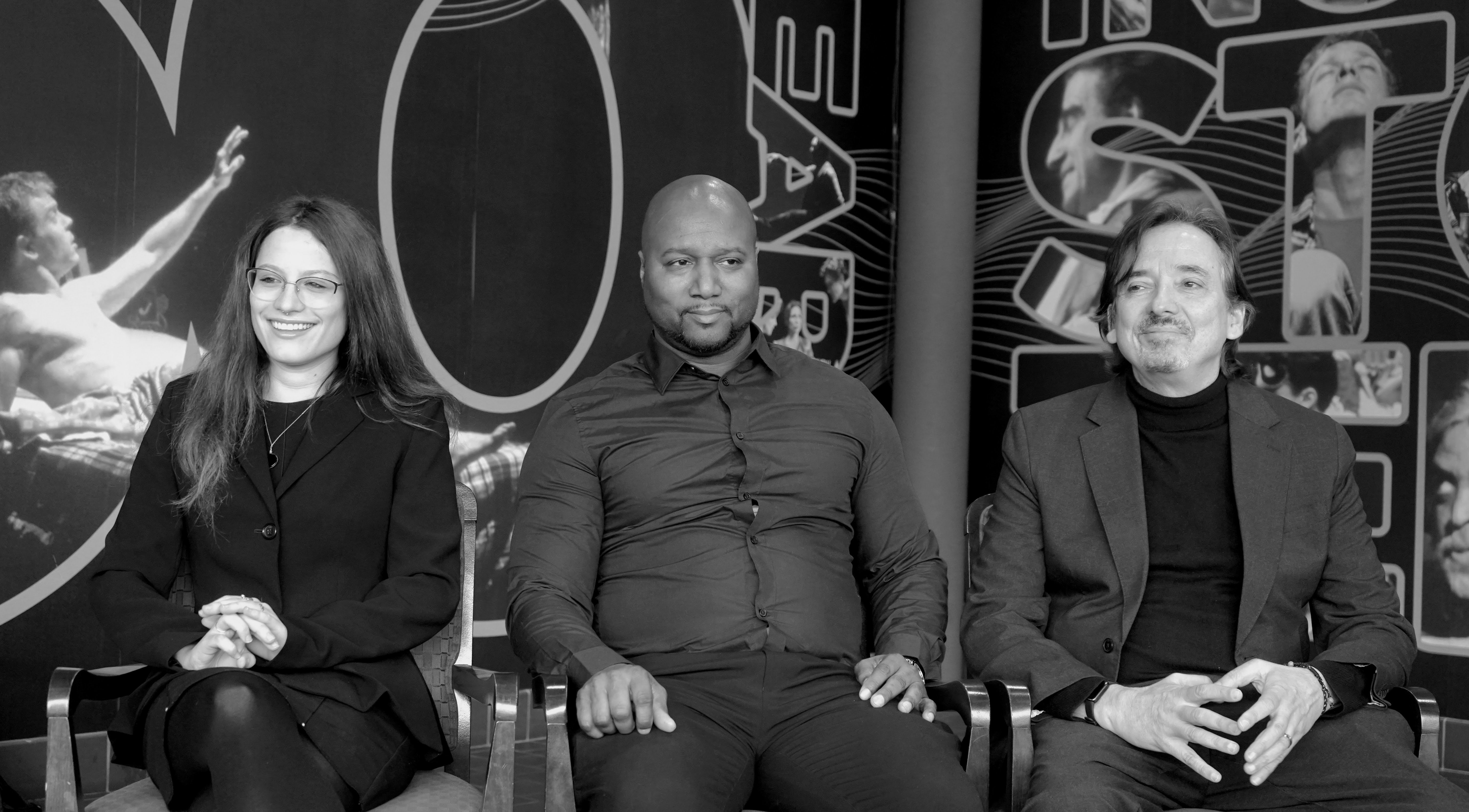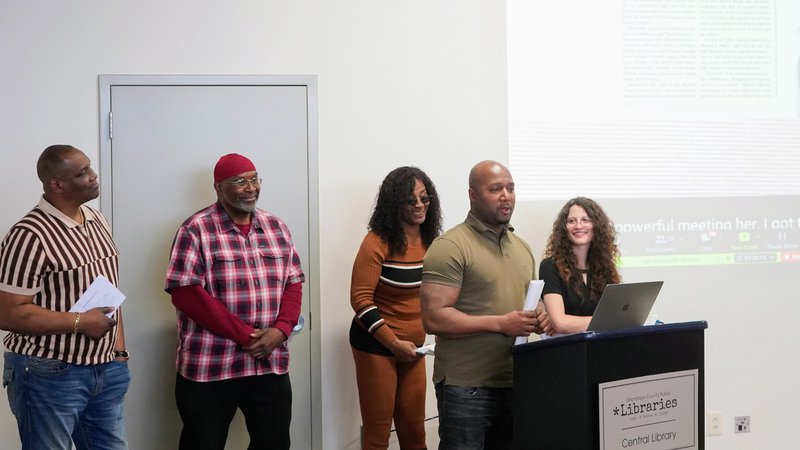Creating Identity and Building Community Through Writing
A&S professor awarded grant to develop magazine with formerly incarcerated.

When A&S students enroll in Associate Professor Patrick Berry’s class on writing and rhetoric, they likely think, correctly, that they will learn the foundations of good writing across various genres. However, they may not imagine that Berry’s vision for the class involves a less tangible side effect: building community. And that community fostered through the experience of writing and sharing work inspired Berry to found Project Mend.
This year, for the second time, Berry will be awarded a $25,000 Post-Incarceration Grant from Humanities New York to fund his work with Project Mend, an online and print magazine of works by people impacted by the criminal justice system. This grant recognizes that virtually every participant at Project Mend, including Berry himself, has had their life touched by incarceration.
“We don’t always acknowledge family members in the equation of justice-impacted people, but we have to when we’re talking about impact,” says Berry, whose father was incarcerated while he was growing up. “Project Mend brings a group of people together to work on a national publication called Mend, but also, as a part of that, to engage in humanities-based programming.”
Mend, whose second issue is currently underway, exists as both a print and open-source publication. Participants, all formerly incarcerated or from incarcerated-impacted families, come to campus weekly to work on it. “We do a range of activities, from reading manuscripts to designing layouts,” says Berry. Activities include meeting publishing professionals, learning how to edit documents, how to work with images, and how to make pages. The year ends with a published issue. “It’s gotten popular, so now I have more manuscripts coming in from around the country,” says Berry.
Crucially, the grant funds stipends for all the participants. In addition, the money allows Berry to bring in speakers and guests from the field, and also to offer refreshments—something that he finds to be key for fostering community. The group marks the publication of an issue with a large launch party, both virtual and in-person. “We just had a launch event in February, with a great turnout—even [New York State Senator] Rachel May was there—and it was at the Central Library, downtown Syracuse. People bring their families and friends and it’s really a celebration.”

Project Mend team members at the journal launch party in February 2024.
Notably, this is not your typical prison publication. “You won’t see bars on the cover,” says Berry. There is no prison theme; writers are not required to talk about their experiences in prison or the problems of the criminal justice system. “Those pieces are in here, and they’re welcome,” says Berry, “but for example, one person wrote a love poem. One person wrote a sci-fi piece that’s a little out there.” Beyond pushing participants to stretch their writing skills, Berry says, “People are writing themselves into new identities. We wanted to create a space for that, to not always have their identity trace back to prison.”
In the same vein, Berry insists on the importance of separating the value of each individual’s experience from simple job training. “Sometimes the liberal arts seem like something that only the elite get access to. I think that is problematic,” he says. “We all need to take advantage of the rich opportunities that are available through learning, whether you’re a formerly incarcerated person or a Syracuse student.”
Project Mend is made possible through collaboration with the Center for Community Alternatives and from an HNY Post-Incarceration Humanities Partnership, which is generously supported by the Mellon Foundation. Additionally, the project has been supported at Syracuse University by the Engaged Humanities Network, the Humanities Center, the SOURCE, the Department of Writing Studies, Rhetoric and Composition, and a CUSE Research Grant.
